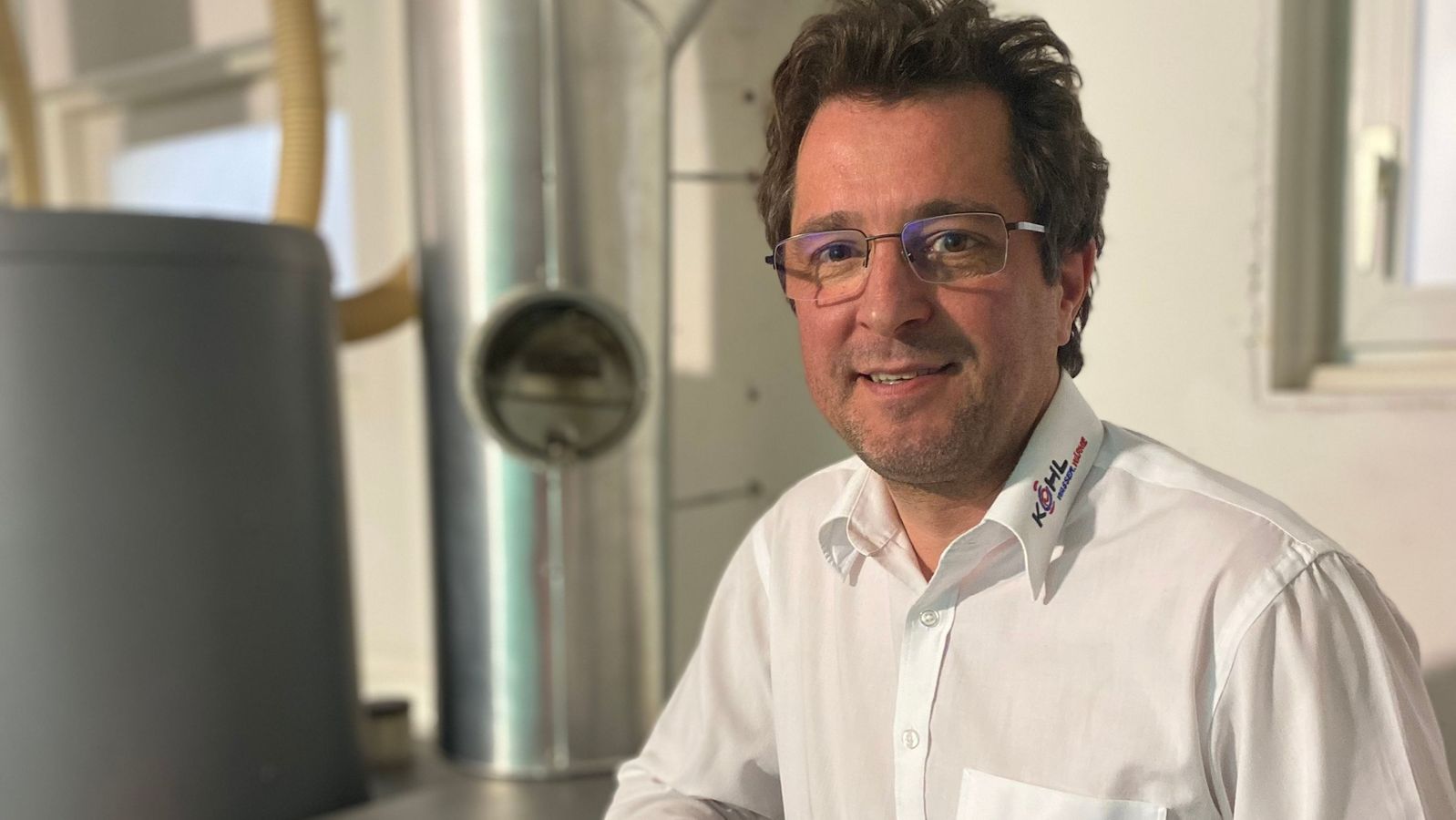If Federal Economics Minister Robert Habeck (Greens) has his way, all new heating systems must use at least 65 percent renewable energy from next year – a challenge for tradespeople and homeowners. BR24 therefore spoke to the heating engineer Albert Kohl, who runs a building services company with around 50 employees in Bobingen, Swabia. One of his areas of expertise is heating construction.
Mr. Kohl, is Habeck’s initiative good or bad in principle?
The thought behind it is really good. The timing of implementation is problematic, because neither the craft businesses nor the industry are able to implement it in this short time. In other words: what the previous governments overslept, the traffic light wants too quickly. The consequences are already a shortage of materials and a price explosion due to the immense demand.
What does that mean in numbers?
With standard models, you have to reckon with around 15,000 euros for a gas heater, with heat pumps the prices have shot up to around 30,000 euros. Our advice to customers at the moment is: Wait and see what politics ultimately decides and until the market calms down. In two or three years, a heat pump should be significantly cheaper again and maybe around 18,000 euros.
Do your customers have that composure?
By March we had already sold as many new gas and oil heaters as in the whole previous year. People are panicking. However, sometimes it can also be sensible to replace a very old gas heating system with an efficient new model if the building is simply not suitable for a heat pump.
And for which buildings are heat pumps suitable?
So that efficiency of a heat pump comes into play, the flow temperature – i.e. the temperature required after the heating pump – should be as low as possible. This works ideally with good insulation and large heating surfaces. So in a new building with underfloor heating. But even an old building can work well with a heat pump if the radiators are large. Then it might take ten minutes longer for the house to warm up. And the truth is that a poorly insulated house is inefficient with any heating system. The crux of the matter lies elsewhere.
And where is the sticking point?
With the terraced house in the city center, the question is: where do I put the pump. Even if an air-to-water heat pump fits in the basement, the heat source still has to be installed outside, which can look like some kind of fan box. In 30 percent of our orders, a heat pump is not possible because of the distance to the neighbors or because of the soundproofing.
So what are the alternatives that also meet the 65 percent target?
In theory, a lot is possible. In practice, however, I only see the following options: A geothermal heat pump or water-water heat pump. But they are expensive. Then pellet heaters. Or a hybrid solution in which, for example, a gas heater is combined with a heat pump. That can even be very useful. Keyword service water with high temperatures. This requires a heat pump, but is not a problem for gas heating. Ultimately, however, we have to get the price of the heat pump down. Technically it’s not rocket science. In other countries it is already a mass product.
Can’t you simply install products from Asian suppliers?
no I see two problems: On the one hand, there is the issue of soundproofing, which sets strict limits for us. And then the temperature fluctuations in our latitudes. But competition from outside wouldn’t hurt to get things moving. What Samsung builds, for example, is not a bad product, on the contrary. Their heat pumps are technically mature. The difficulty for these providers is rather to get the network of craftsmen in Germany who install and also maintain the heat pumps. It is already difficult to find a refrigeration technician who can repair heat pumps.
Bavaria’s Economics Minister Aiwanger relies on gas heaters that can be operated with hydrogen in the medium term. What do you make of it?
An admixture would theoretically be possible. But I haven’t met anyone from the technical area who would have said that we can do it in a large-scale network. It starts with the fact that hydrogen is not as easy to trade as natural gas. In today’s buildings, the lines would probably be leaking in rows. So I think that’s unrealistic. I find the “Power to Gas” idea more interesting. Natural gas is generated from CO2 and excess electricity – for example from photovoltaic systems.
What would you like from politics?
Let’s calm down this topic and make a plan. And if we then manage to generate enough renewable energy in Germany, we can do it.
This article first appeared on BR24 on May 25th, 2023. The topic is still relevant. Therefore, we have republished this article.
